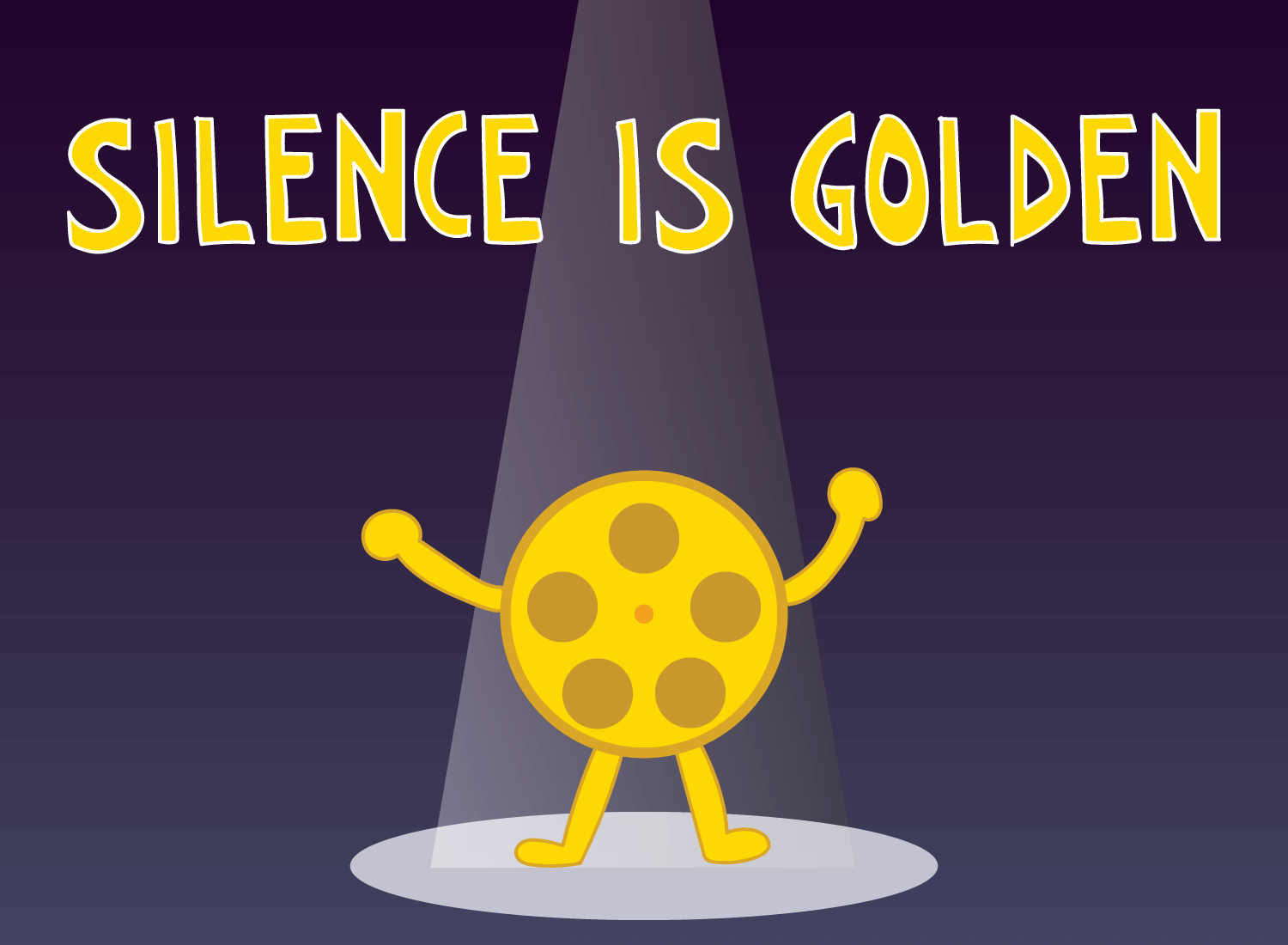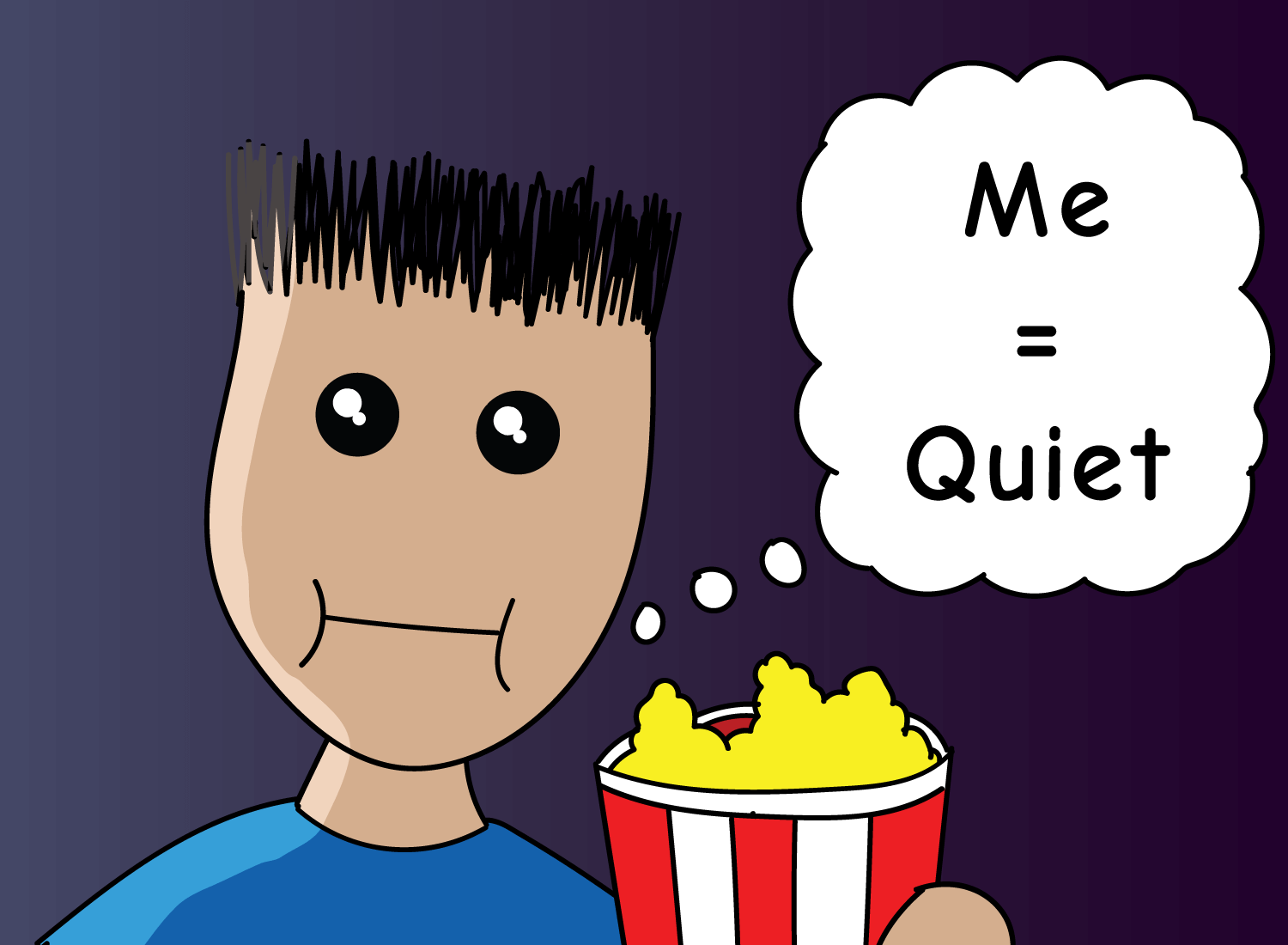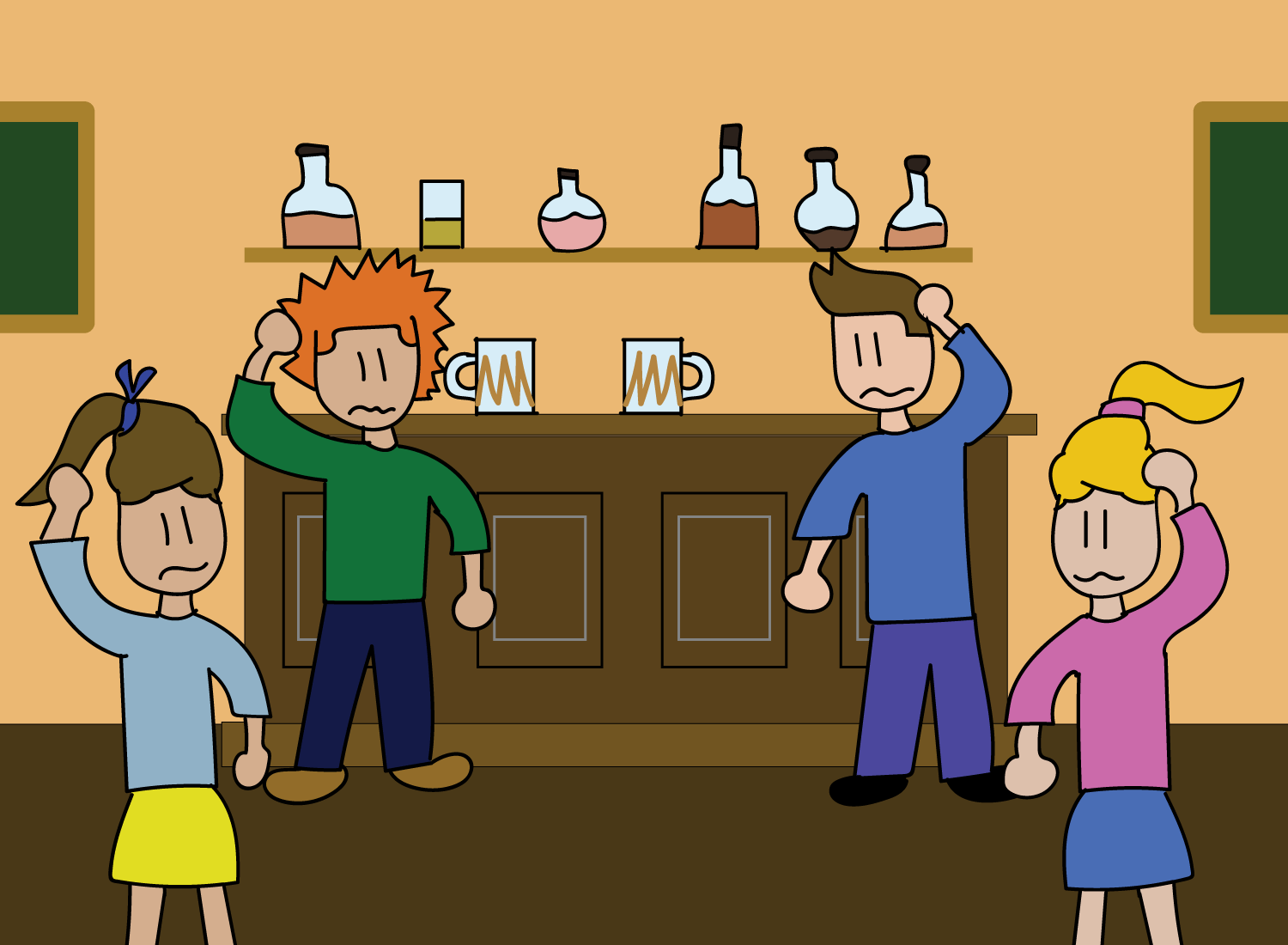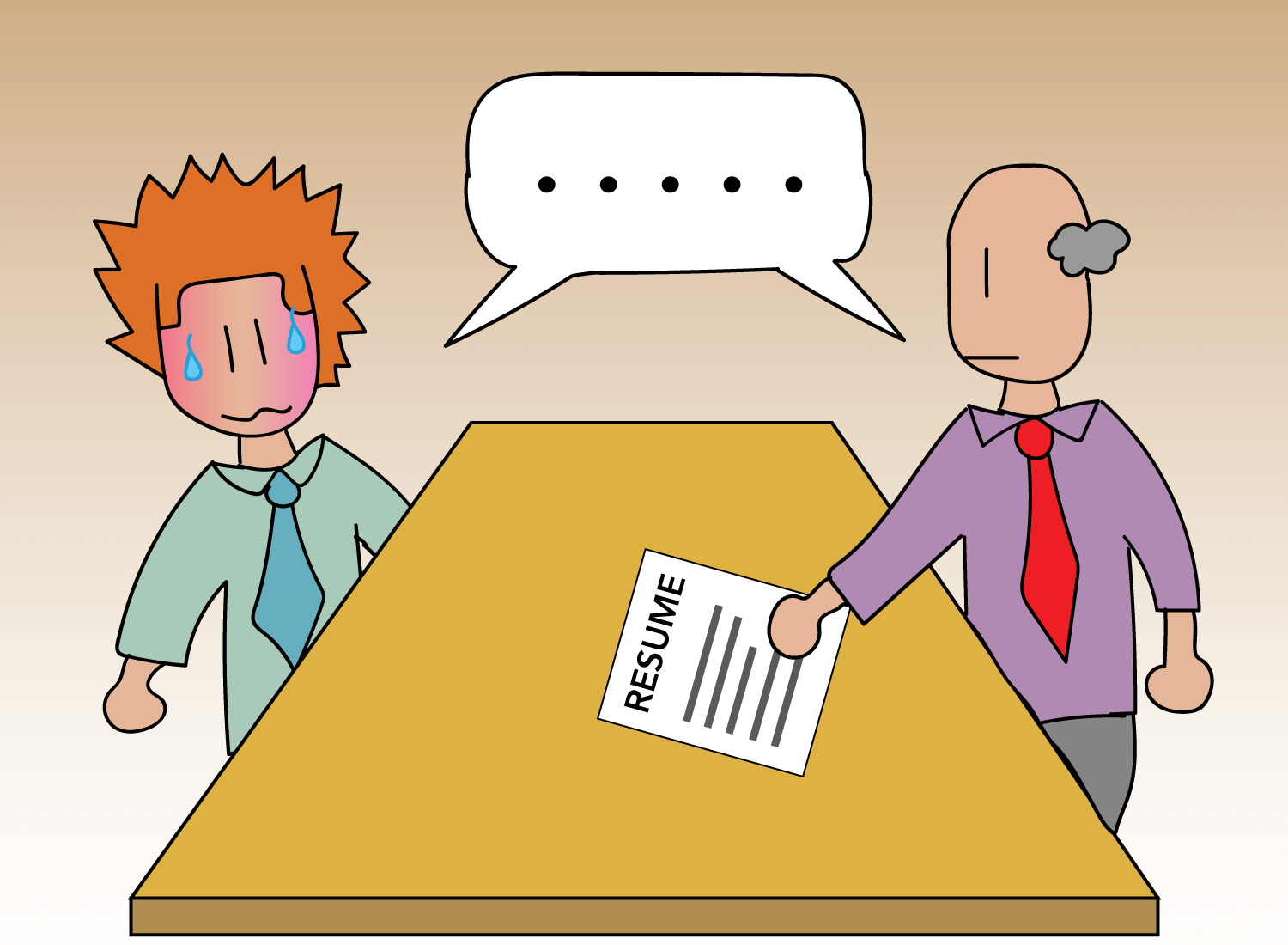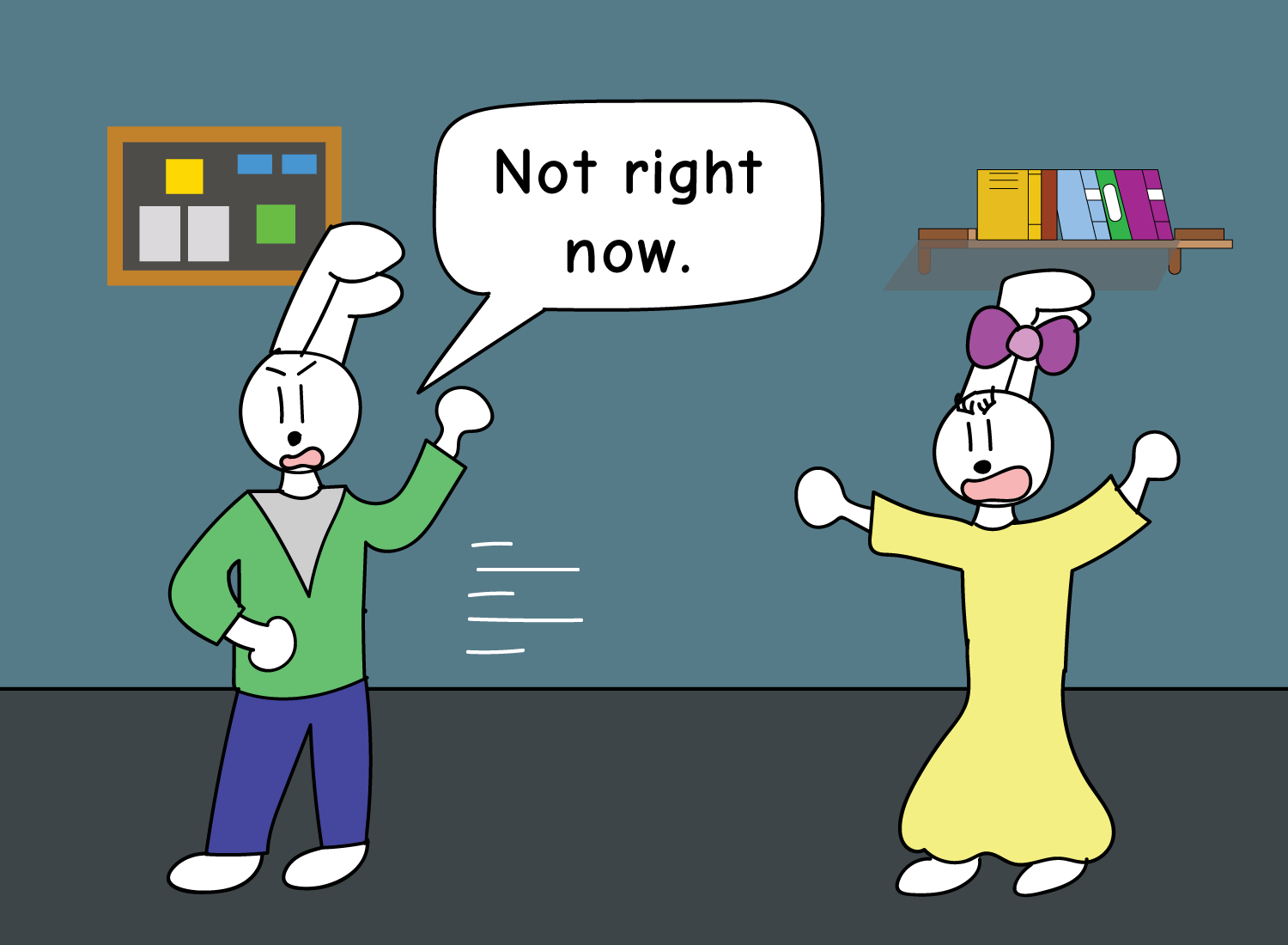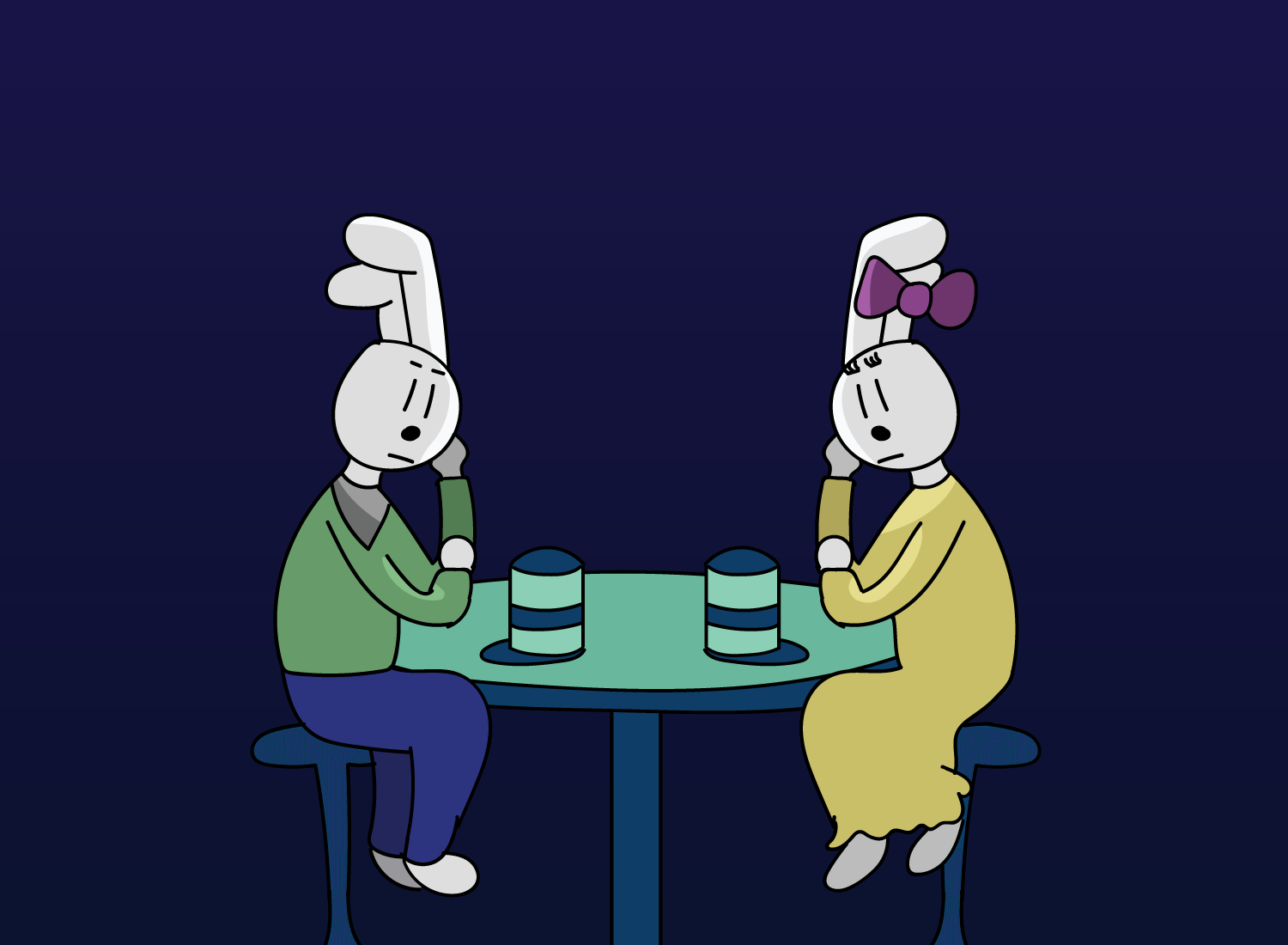Weaponized Silence: The Worst Form of Quiet
When I was younger, I went to the movies quite often. I recall crying when Mufasa died in The Lion King, feeling nervous when Rose disrobed in Titanic, and being pumped up as Neo dodged bullets in The Matrix.
Before each movie began, the theater would show a brief clip of a golden film reel dancing around to tell us something. It was there to remind everyone of the one rule we needed to follow:
Seeing this always excited me. It was a reliable signal that the previews were over, and that the movie was finally about to start. I didn’t have to be reminded to shut up and enjoy the film.
I was there to do just that.
A movie theater is a communal space where silence is desirable. In fact, any setting where people gather as an audience is one where silence is assumed upon them.
However, when people gather to interact with one another, silence takes a different form.
It becomes a source of anxiety. A surrogate for awkwardness. The longer a silence lasts, the more tension is felt amongst the group that experiences it.
In both scenarios, however, the inherent attribute of silence is the same. It’s the lack of mouth noises between two or more people. A temporary void of speech that is shared amongst one another.
But in one case it brings happiness, and in the other, fear.
Silence is a powerful language. It lacks any phonetic structure, but the way we use it reveals more about ourselves than even words can.
While the spoken word is about clarity, silence is all about context. It is how it’s used that reveals its intentions.
If you want to know the true nature of your relationships, study how silence is internalized between you and the other. This will yield more insight into your bond than any amount of sentences ever will.
Think of a person that you feel deeply connected to. A partner, a sibling, or a childhood friend may suffice.
Silence is likely a welcomed companion between you both. You would be able to be in a room together, doing your respective things, immersed in a quiet that feels both comforting and familiar. The silence doesn’t need to be addressed because it’s not a foreign entity. It’s embedded into the rhythm of your shared existence, moving in and out as you walk along a collective life journey.
While this is nice, the opposite of this situation would be meeting someone for the first time.
Much of why silence is uncomfortable here is because there’s no shared rhythm to ground yourselves in. With a partner or sibling, you have a lived experience that creates a cadence to your relationship, a familiar beat that makes you feel at ease when you see them.
But when you’re on a first date or a job interview, you’re both starting from scratch. There’s no beat to catch, no foundation to build on further. This develops the expectation to find common ground immediately, and if you’re not doing so, silence will be there to remind you of that.
This pole between awkward and pleasant silence is generally how we perceive this phenomenon. Either it is uncomfortable, or it acts as a soft embrace between us and others.
However, even in the realm of the familiar, silence can be used in a deeply discomforting way.
It can be used to express disapproval of a loved one’s lifestyle. It can take on the form of vengeance against a family member who did you wrong. It can be used to avoid discussing the most important issues with your partner.
This is weaponized silence. It is perhaps the most pernicious form of communication; far more destructive than any emotional outburst of words. While a regretful outburst is made in the heat of the moment, weaponized silence is intentional and long-lasting. It slowly degrades the fabric of your bond by removing vulnerability and openness, culminating in a dark, cold emptiness devoid of any love.
Weaponized silence is deceptive. It often masquerades as a passive retreat from conflict, but in reality, it is a proactive tool of destruction.
For example, when a couple gets into an argument, it’s quite common for one person to adopt silence and walk away from it. The rationale is that emotions are running high, so it’s time to retreat and handle this at a later time.
In this situation, the person walking away seems calm and full of wisdom. They seem like a master of emotional regulation, understanding that it’s foolish to argue when feelings are high.
The problem, of course, is when you fail to close this loop at a later time.
If you use silence to walk away from conflict, you must use dialogue once you return back to it. And when I say dialogue, I don’t mean, “Hey, wanna go watch TV?” What I mean is, “Hey, let’s talk about what just happened. I want to make sure we understand how we both feel about it.”1
Silence without a conversational follow-up becomes weaponized. It becomes a form of mute punishment, building tension as it dances around the real issues that must be addressed. It forms taboos by putting walls around certain touchy subjects.
It denies the open, collaborative spirit that is required to solve problems together.
My wife and I keep this in mind during the few times we get into arguments. We may need some time to ourselves to reflect and think, but we rarely go to sleep that day without talking about it. If we allow that silence to bleed into the next day, we know it has a higher chance to become weaponized.
The most insidious thing about this kind of silence is that it can feel good to use it on a person who cares about you. Denying a loved one access to your mind and heart is the ultimate way of saying, “You see, that’s what you fucking get.” It may feel good to punish them in this way, but just remember what the long-term consequences of this are.
Every wall you put up is a reminder of how inaccessible you are. Every attempt to push a loved one away is a weak demonstration of some illusory power.
Silence is golden, but it can also be dangerous. The same force that warms up a relationship can be the very thing that tears it down. Silence only magnifies what already exists, so take a moment to think about how you internalize it with the people around you.
The absence of words reveals more than any word ever can.
_______________
_______________
Related Posts
Why you can discuss the truth, even if it may be hard to do so:
Why Everyone Can Face the Truth
Weaponized silence might bring you respect, but it won’t give you love:
Respect Is No Substitute for Love
A reminder that openness is what drives the closest friendships:
